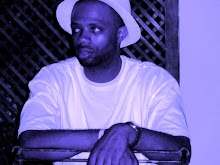Let me make this clear, I am not from Michigan, not for Detroit, but I remember Detroit. We all carry idealized notions about the past, but that's not what I'm talking about. I am talking about remembering the city of Detroit when you step into that ballot booth tomorrow (you better be voting!) I've had a number of conversations that make me feel Michigan voters are just as confused on Prop 2 as California voters were on Prop 209.
For me behind all the rhetoric, debates, and disagreement are the lives of real people. The lives that I am most concerned about are children. A basic feature of our society is that children of different races are born to vastly different life circumstances. You can look at birth weight, neighborhoods, incomes, wealth ... in all of these areas Black and Brown babies stand at a serious disadvantage to White children. This doesn't mean that they're aren't White poor folks, it just means that if you look at where we come from, on average, our worlds are still separate and unequal. Behind the numbers and statistics are real lives.
I spend a lot of my weekends in Detroit and I travel along the city's streets I realize that Detroit is a city that the state of Michigan has forgotten. While the politicians of the legislaturet and the mayors have done battle, the real costs of these contests have been the children that will grow up in, survive in, and die in the city. For many the city "was great" and "before Coleman Young" it was utopia, but the reality is that inequality between races in Detroit has always been an issue. The uprising of the late 60s (which weren't race riots) simply cast the light on the problem of deep seated difference. The seeds planted in the 40s and beyond are still coming to fruition in the generations that live the costs of racial and economic segregation.
The truth is in 2006 race and class inequality are so intertwined it's ridiculous to separate them in our analysis of inequality. But this does not mean that one is a substitute for the other. Race and social class together mean something powerful, something more powerful than the individual parts do. Affirmative Action, as we know it, has never been simply about race.

This brings me to my simple question: Will your vote on Proposal 2 be a vote for the children?
For my money's worth, if you look at the supporters of Prop 2, who among them has been doing the work to help the children of Detroit? To help the children of Flint? To help children, besides those born into privilege? How many of the supporters travel into Detroit and make sure the legacy of gross inequality that exists is addressed? How many have done outreach to populations that haven't had an equal chance from birth?
This does not clear the opposers of Proposal 2 from action either, but if I ask myself this same question, the difference between the two becomes more clear for me. When we think about who has been doing things for the children, for the marginalized, for the poor, for the oppressed, an answer emerges. Affirmative Action has and should be about opportunity. Opportunities that at birth are grossly different between races in particular.

